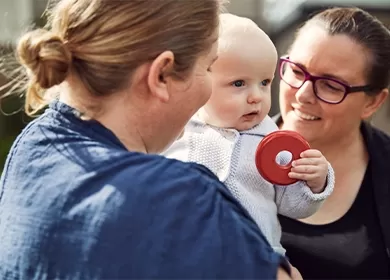Don’t have an account?
Select the donation type you’d like to make
UK blood donation ‘mad cow ’ rule has changed — for good
People who lived in the United Kingdom for over 6 months between 1980 and 1996 can now give blood in Australia. Yep, blood donors from the UK are A-OK!
At Lifeblood we’re absolutely thrilled (proper chuffed, even) to swing open our doors to eager blood donors who spent time in the UK and who now call Australia home.
This change includes people from or who lived in England, Wales, Scotland, Northern Ireland, the Channel Islands, Isle of Man and the Falkland Islands.

This you? Book your Aussie blood donation now!
You bring yourself, we’ll bring the tea and bikkies.
Is this your family, friends or workmates? Share the news.
Let them know they’re now OK to give blood and to book a donation now.
- When can blood donors who have lived in the UK between 1980 and 1996 give blood in Australia?
Right now! Anyone in Australia who spent time in the UK for 6 months or more between 1980 and 1996 can book a blood donation with Lifeblood, as long as they're otherwise eligible.
- I’m from the UK (or lived there for 6 months between 1980 and 1996) and want to give blood in Australia. How do I do it?
To get started, simply book a donation online or call 13 14 95 to speak to one of our team.
We’re excited that you’re excited. Keep it up! We can’t wait to see you in a donor centre.
- Why couldn’t people who lived in the UK give blood in Australia before?
Previously, since December 2000, people who lived in the UK for over six months between 1980 and 1996 weren’t able to donate blood in Australia. This rule was because of the UK outbreak of human variant Creutzfeldt-Jakob Disease (vCJD), often known as ‘mad cow disease’. It’s a fatal disease that can incubate undetected in someone for many years. There’s no screening test either, which means we can’t test for it in blood donations.
- Why change the UK blood donation rule?
Lifeblood’s medical experts worked with the University of New South Wales’ Kirby Institute to research the risk of vCJD in Australia’s blood donor population, which showed it was time to change the rule. Then, we put a submission in to the Therapeutic Good Association (TGA), which was approved.
Our risk modelling shows that even with this change, Australia’s blood supply will remain one of the safest in the world.
- If all blood is tested, why was this rule necessary before?
Unfortunately, there is no suitable screening test to detect carriers of vCJD, so Lifeblood wasn’t able to test donations for it.
- Why were these donors able to give blood in the UK but not in Australia?
If the UK had the same policy as we had until 25 July 2022, there wouldn’t have been enough people left there who could donate. Not having a reliable blood supply would be more dangerous for patients in the UK than the much smaller risk of spreading vCJD.
- Is it safe to remove this rule if there’s still no test for vCJD?
Yes. The latest modelling determines there’s effectively no increased risk to patients receiving blood products. This is supported by real-world evidence, and we have no cases in Australia.
Our submission to the TGA was based on the most up-to-date clinical and scientific evidence, and reviewed by external medical experts, prior to being approved by the Australian regulator, the Therapeutic Goods Administration (TGA).
- Have other countries removed or changed this rule?
Australia is one of the first in the world to remove this rule. The Irish Blood Transfusion Service removed their exclusion of UK-resident donors in 2019 and the UK has allowed blood donation from their citizens and now accepts plasma from their donors. Because vCJD was so prevalent in the UK, it would have been very hard for them to have enough donations to meet demand if they hadn’t adjusted for this rule earlier.
- I received a blood transfusion in the UK after 1980. Can I give blood?
Yes, as long as the transfusion was at least 4 months ago and you’re otherwise eligible.
- When will you look into changing other donation rules related to sexual activity?
As a priority, Lifeblood is actively investigating other pathways that may allow more people from all groups to donate. As new data and evidence is collected, it becomes part of a body of research used to inform recommendations and decisions about donation criteria.
At Lifeblood, we’re continuing our focus to make it easier for all Australians to give blood, while always ensuring Australia’s blood and blood products are as safe as possible for all recipients.




